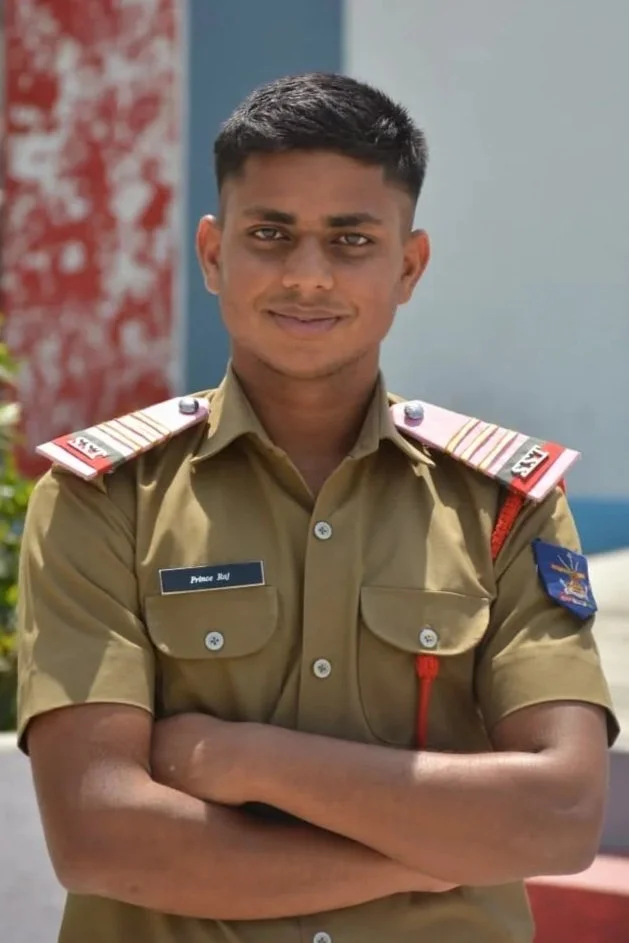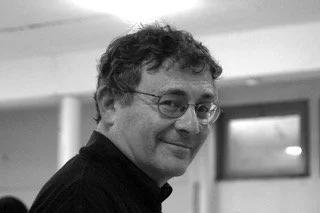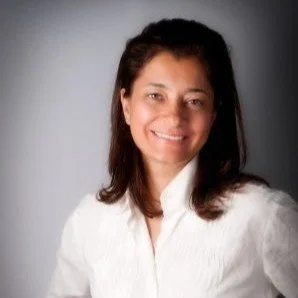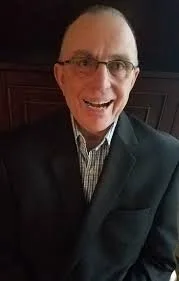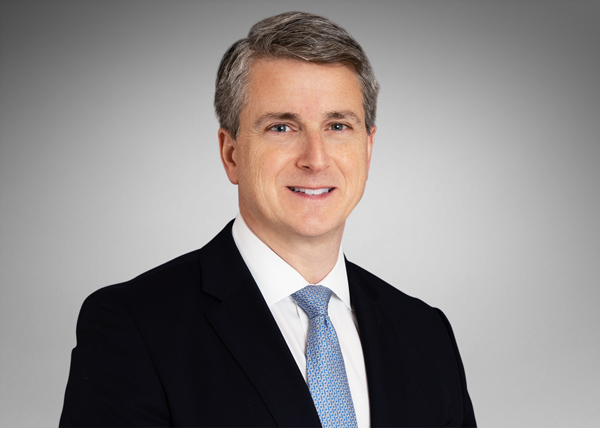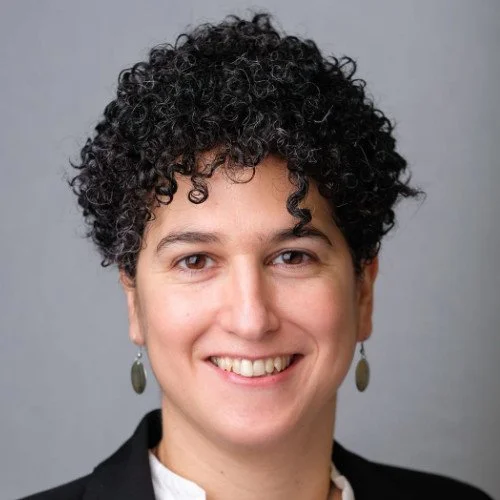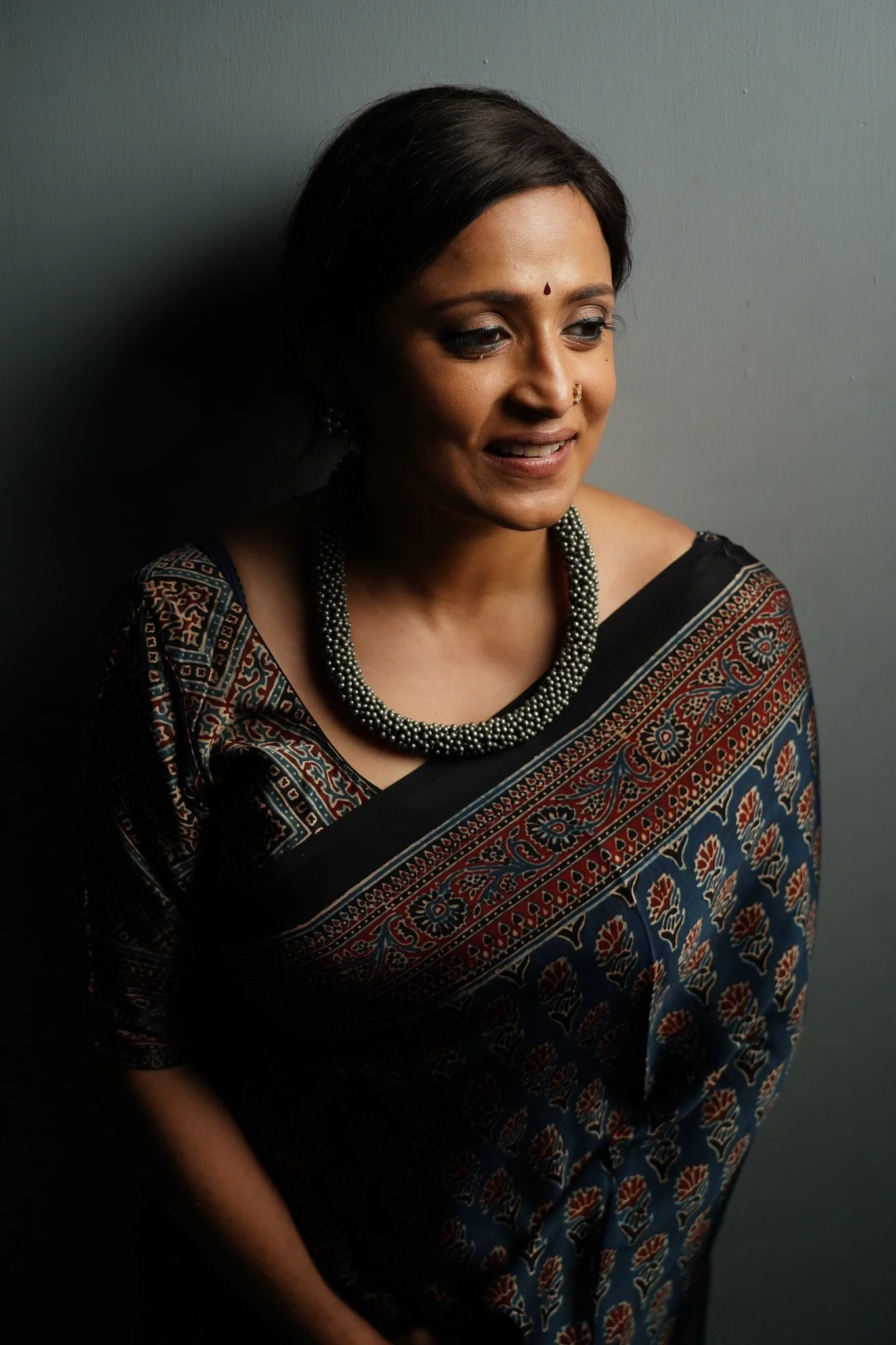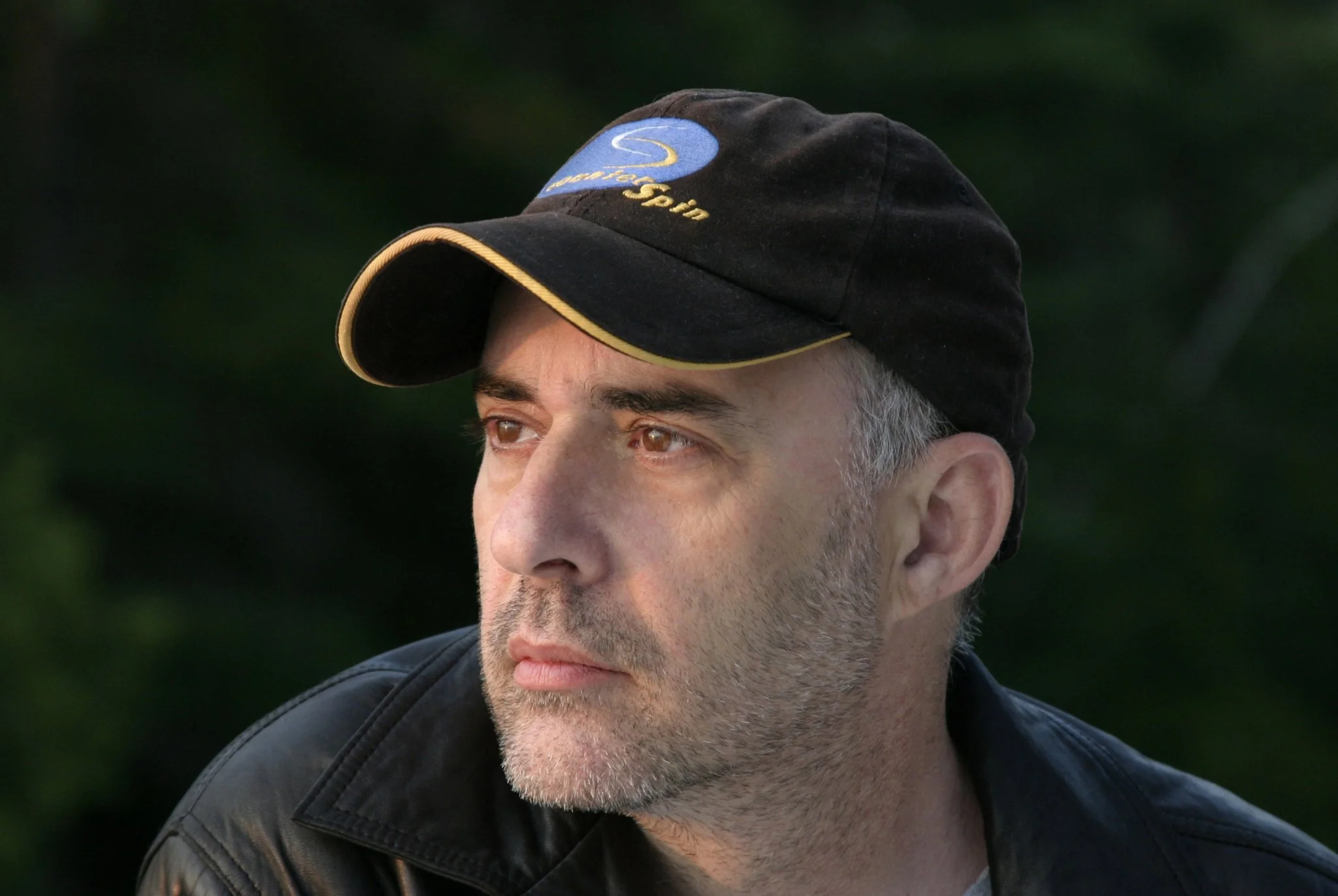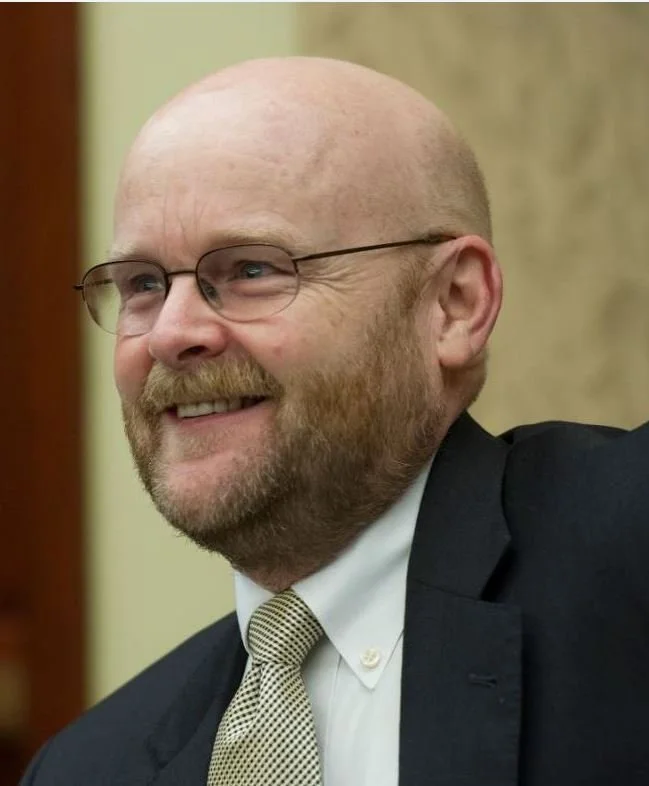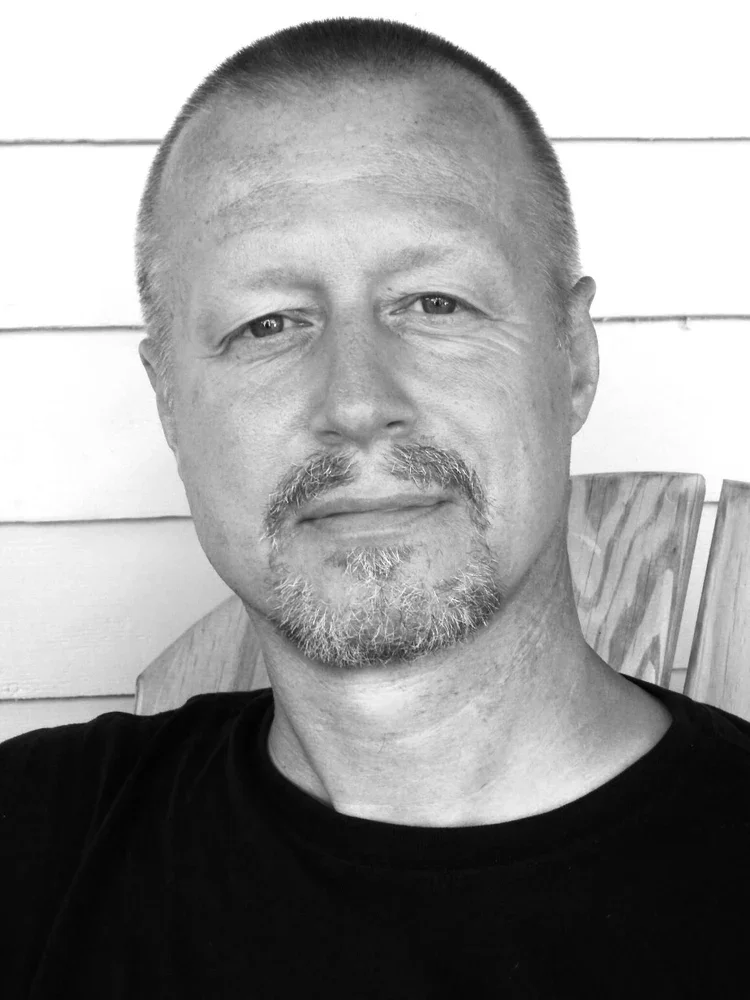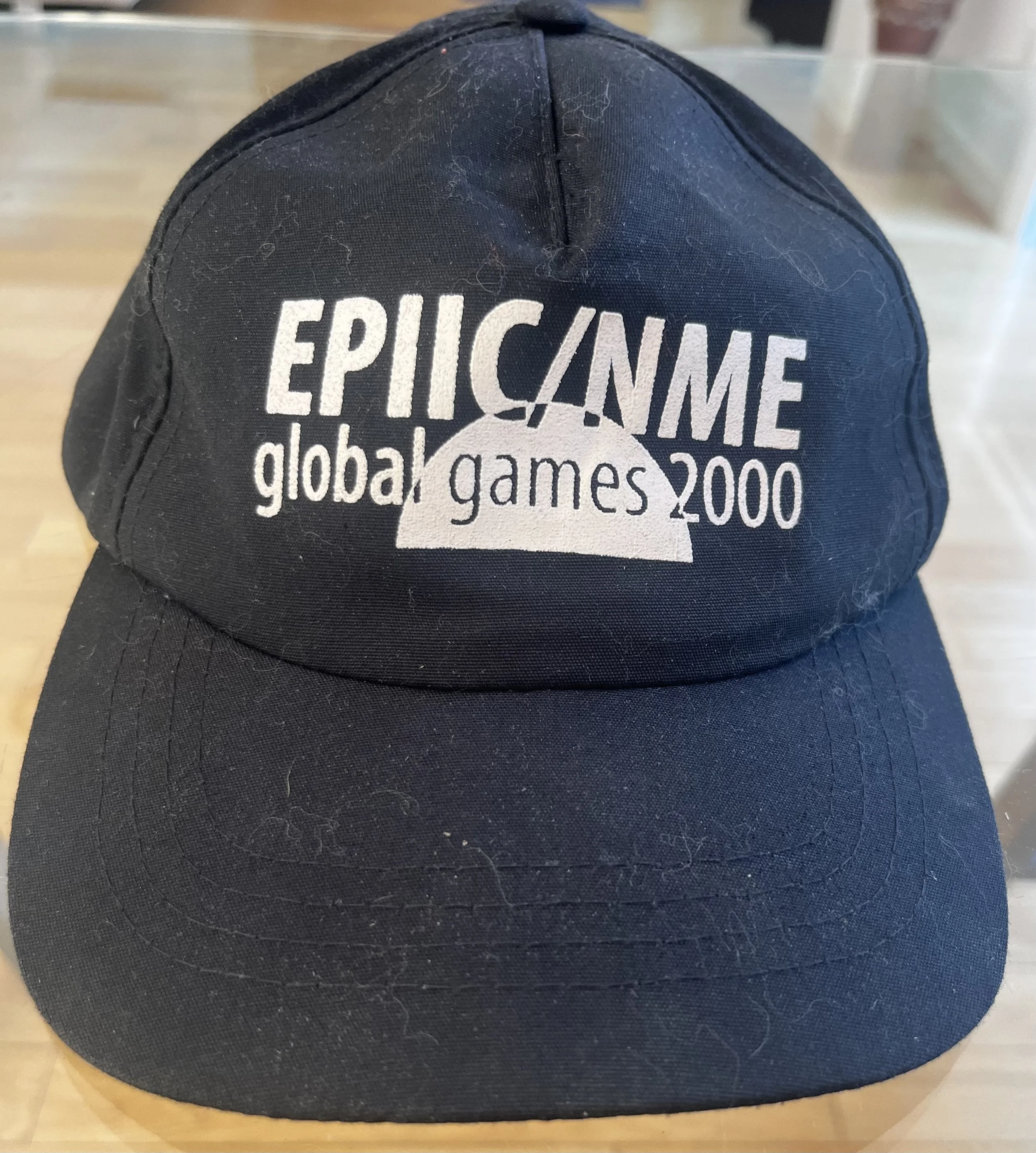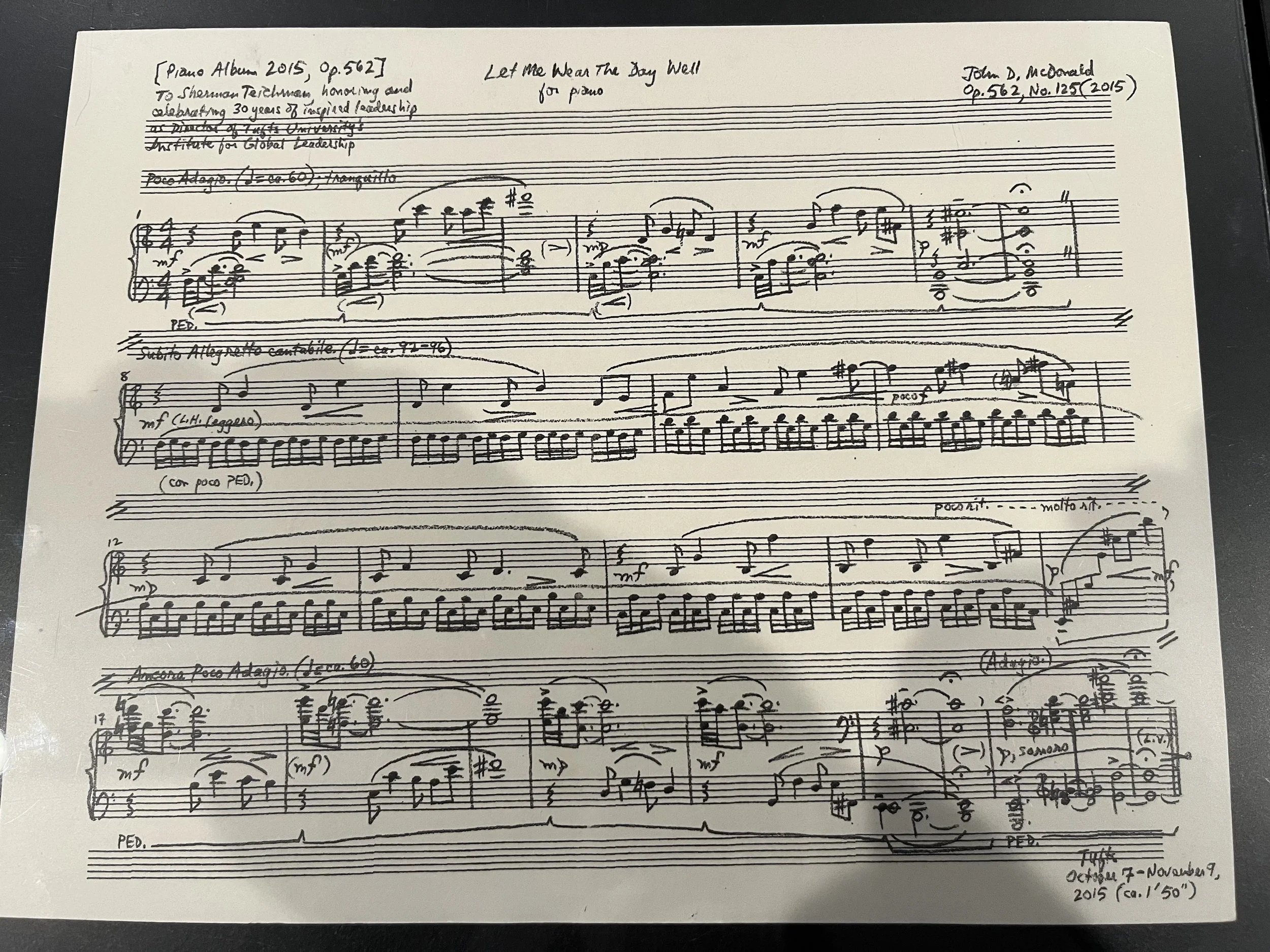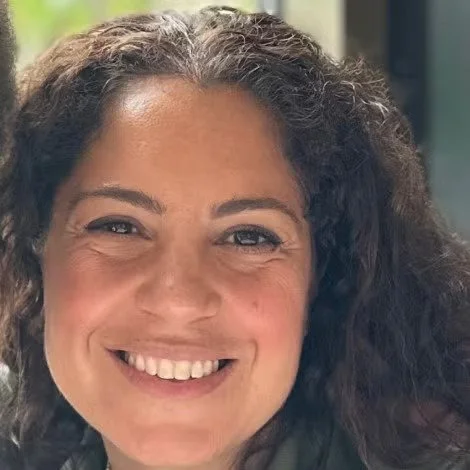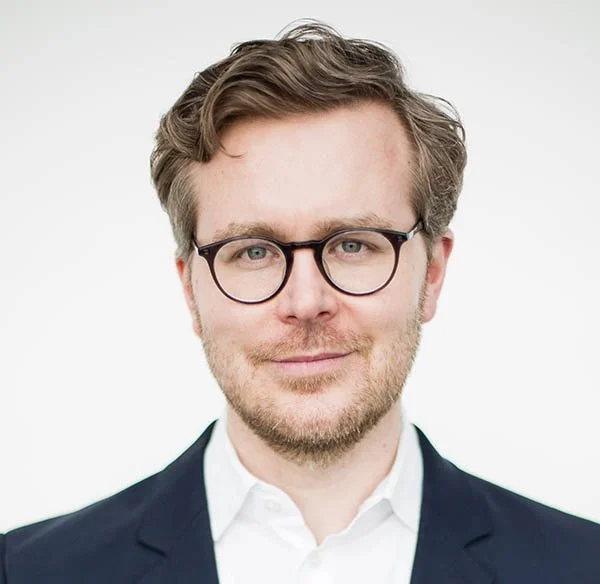Prince Raj
Prince Raj is an undergraduate law student at Sai University, Chennai. He recently completed his summer internship in the Office of the Solicitor General of India at the Supreme Court of India. He completed his schooling at Sainik School Tilaiya, a premier institution under the Ministry of Defence, Government of India. Inspired by his early experiences with communities affected by mineral extraction and poverty, Prince chose to pursue law with a focus on advancing social justice.
His academic interests lie at the intersection of energy law and human rights, with a particular focus on nuclear energy law and non-proliferation. He is deeply engaged in research on the social and environmental consequences of nuclear radiation, especially in Jaduguda, the site of India’s first uranium mine. At the same time, he recognizes the transformative potential of nuclear technology, particularly Small Modular Reactors, in shaping the future of sustainable energy. He has served as the Chief Student Coordinator for the 10th Nuclear Energy and Law Training Programme organized by the Nuclear Law Association of India.
Beyond academics, Prince is an active poet, known for his thought-provoking recitals that blend creativity with social commentary. He is also a sports enthusiast and athlete, with a passion for football and volleyball.
David Chanoff
David Chanoff received his B.A. from The Johns Hopkins University and his Ph.D. in English and American Literature from Brandeis University. He has written on current affairs, foreign policy, education, refugee issues, literary history, healthcare and other subjects for such publications as The New York Times Magazine, The Wall Street Journal, The New Republic, The Washington Quarterly, The American Journal of Education, Medscape, The New York Review of Books, The Washington Post, and The American Scholar. He is a featured writer in the Washington Post’s anthology The Writing Life and his work appears in the Norton Reader Anthology of Nonfiction (12 th edition). His academic affiliations have been with Tufts University, The Helsinki University of Technology, Boston College, and Brandeis University in fields as varied as psychology, English language and literature, and anthropology. His twenty-six books include collaborations with former surgeon general Dr. Joycelyn Elders, healthcare disparities expert Dr. Augustus White, former Israeli prime minister Ariel Sharon, former chairman of the Joint Chiefs of Staff Adm. William Crowe and former secretary of health and human services Dr. Louis Sullivan. Several of his books have been included among the New York Times Notable Books of the Year. Among his more recent publications, his collaboration with Louis Sullivan [Breaking Ground] was named the NAACP’s Best Biography/Autobiography of 2014. Spies in the Family (with Eva Dillon) received the Association of Former Intelligence Officers award as Best Intelligence Book of 2017.
We’ll Fight It Out Here, a history of Black health and healthcare going back to pre-emancipation times, was published by The Johns Hopkins University Press in October, 2022 and received the 2023 Phillis Wheatley prize for history from the Sons & Daughters of the U.S. Middle Passage. Anthony Benezet: Quaker, Abolitionist, Anti-Racist, about the 18th-century Philadelphia Quaker who led the campaign against the Atlantic slave trade, will be published by the University of Georgia Press in 2025. From Crisis to Calling, a collaboration with his son Sasha, is about moral decision-making at critical moments of life. Dr. Chanoff is currently a visiting research scholar at Brandeis University.
Sohinaz Sotoudeh
Sohinaz Sotoudeh is a distinguished leader in the global energy sector whose career exemplifies innovation, strategic foresight, and an unwavering commitment to sustainable development.
As Senior Vice President and Head of Development and Origination at Diamond Generating Company, Sohinaz has been at the forefront of transforming the energy landscape, guiding the company’s efforts to identify, structure, and deliver groundbreaking power assets into operation. These assets span the spectrum of energy technologies, from natural gas generation to wind, solar, solar-plus-storage, and advanced standalone storage systems—projects that are not only reshaping markets but also addressing the urgent challenges of energy transition.
Known to us as "Sunny" when she was my student in our EPIIC colloquium, International Security: The Environmental Dimension (1992) at the Institute for Global Leadership at Tufts, her disposition easily reflected her name. While light-hearted and warm in demeanor, she was clearly a serious and thoughtful student, and I enjoyed our conversations and her challenging questions.
She graduated with honors in economics from Tufts University, and subsequently earned her MBA in Finance from Columbia University's Business School.
Her career which bridges finance, innovation, and global energy leadership reflects a remarkable progression through some of the most dynamic organizations in the field.
At EDF Renewables North America, Sohinaz directed power marketing and transactions, negotiating complex power contracts and acquisitions that strengthened renewable energy deployment across the continent. Earlier, as Vice President of Business Development at Ogin Energy, she helped shape the company’s wind development strategy and led strategic acquisitions. Her career foundation was built at GE Capital’s Equity Capital Group, where she evaluated and supported venture capital investments in energy technology start-ups, sharpening her ability to recognize and cultivate transformative opportunities.
Known for her clarity of vision, her ability to bridge financial acumen with technological innovation, and her deep commitment to advancing sustainable solutions, Sohinaz represents the very best of what leadership in energy can achieve.
She is celebrated not only for her professional achievements but also for her role as a mentor, collaborator, and forward-thinking voice in a rapidly evolving global industry.
Sunny's specific remarkable trajectory might not have been knowable, to either of us, in the early 90's. Yet the environmental dilemmas were overt, as was her determination and ambition to contribute to global sustainable progress. She has succeeded.
Fred Hogan
Fred Hogan’s life has been defined by service, honor, and an unwavering pursuit of justice. A veteran of the United States Army, he was shaped by the discipline and values of military service — resilience, loyalty, and responsibility — which became guiding principles in his civilian life. After returning home, Hogan joined the New Jersey police force, where he quickly earned a reputation for diligence and integrity. Yet it was also during this time that he began to recognize the flaws and contradictions of the criminal justice system. He saw how prejudice, shortcuts, and institutional pressure could distort truth, and these observations planted the seeds for the transformative career shift that would define his legacy.
Hogan left the badge behind to become a senior investigator with the New Jersey Office of the Public Defender. In this role, he crossed from enforcing the law to defending its integrity, devoting himself to uncovering wrongful convictions and ensuring that the most vulnerable defendants received a fair hearing. His transition was not just professional but moral, embodying his belief that true justice required confronting the system’s failures head-on rather than ignoring them.
It was in this work that Hogan became deeply involved with one of the most infamous cases of wrongful conviction in American history — that of Rubin “Hurricane” Carter and John Artis, wrongfully convicted of a 1966 triple murder in Paterson, New Jersey. Hogan’s investigative persistence and refusal to accept easy answers made him a critical figure in the decades-long struggle for their freedom. He uncovered inconsistencies in witness testimony, gathered new evidence, and ultimately testified at Carter and Artis’s 1976 retrial, introducing his own handwritten notes that exposed the prosecution’s case as a fabrication. In his acclaimed biography Hurricane: The Miraculous Journey of Rubin Carter, author James S. Hirsch underscored Hogan’s importance, quoting Carter as saying, “Without Hogan, I would have died in prison.” Hirsch himself affirmed that Hogan was “instrumental in helping Rubin and John Artis win their freedom,” a testament to the magnitude of his contribution.
Hogan’s relationships with Carter and Artis grew beyond the courtroom into enduring friendships, binding him personally as well as professionally to their cause. These experiences deepened his commitment to justice and broadened his voice in debates over wrongful conviction and the death penalty. His credibility and moral clarity earned him appointments to the New Jersey Supreme Court’s District III Ethics Committee and the state’s Wrongful Conviction Review Board, where his unusual perspective — shaped by his service as a soldier, a policeman, and a defense investigator — gave him authority as both a critic and a reformer.
Hogan also carried his advocacy into the classroom and the public square. At Tufts University, he was invited to speak on the death penalty, where he delivered a powerful lecture that combined legal insight with personal witness. Students and faculty alike were struck by his candor, his storytelling, and the moral urgency of his message. His ability to bridge the professional and the personal, the systemic and the human, made him not only a practitioner of justice but also a teacher of it.
In 2019, Hogan chronicled his extraordinary journey in the book Justice on the Ropes. Both a memoir and a call to action, the book detailed his military service, his time in law enforcement, his investigative work, and his friendships with Carter and Artis. The launch of the book at Brookline Booksmith was more than a literary event — it was a celebration of a life devoted to truth, a gathering of advocates, students, and citizens inspired by his story and determined to continue the fight against injustice.
Through every chapter of his life — soldier, policeman, investigator, advocate, and author — Fred Hogan has exemplified courage, integrity, and empathy. His work with Rubin Carter and John Artis not only helped overturn one of the most notorious wrongful convictions in American history but also demonstrated the power of one individual’s determination to confront systemic failure. His story stands as both a cautionary tale about the fragility of justice and an enduring example of what can be achieved when conscience and courage prevail.
Dan Feldman
Dan Feldman co-chairs the firm’s ESG and Business & Human Rights practices, where his work focuses on environmental, social, and governance (ESG) counseling, business and human rights (BHR), global public policy, and international regulatory compliance. A member of the firm’s Global Problem Solving initiative, he draws on extensive government service across multiple U.S. Administrations. As Chief of Staff and Counselor to Secretary John Kerry in his role as the first Special Presidential Envoy for Climate under President Biden, Dan helped drive the U.S. international climate agenda, coordinating interagency policymaking, engaging corporate stakeholders, and contributing to key bilateral and multilateral climate discussions, including the 2021 Leaders’ Summit on Climate and COP26 in Glasgow.
Previously, Dan served as Deputy and then U.S. Special Representative for Afghanistan and Pakistan at the State Department in the Obama Administration, as Director of Multilateral and Humanitarian Affairs at the National Security Council in the Clinton Administration, and as Counsel and Communications Adviser to the U.S. Senate Homeland Security and Governmental Affairs Committee. He also acted as a senior foreign policy and national security advisor to Democratic presidential and Congressional campaigns. Beyond government, Dan has counseled multinational corporations on ESG and sustainability strategies, with particular expertise in BHR, and was among the first U.S. attorneys to develop a corporate social responsibility practice, recognized by Chambers for his leadership in this field.
He has advised clients on engagement with Members of Congress, executive and foreign government officials, embassies, multilateral institutions, industry associations, NGOs, and the media. Dan also spent more than six years leading civilian efforts on Afghanistan and Pakistan at the State Department, holding the rank of Ambassador from 2014 to 2015. Currently, he is a partner at Akin Gump, a senior advisor at the Albright Stonebridge Group, and a nonresident senior fellow at the Center for American Progress.
Michal Fux
Dr. Michal Fux is a research scientist in the Department of Brain and Cognitive Sciences at the Massachusetts Institute of Technology. Her career has been marked by an unusual intellectual trajectory that links biology, animal behavior, cognitive science, and cultural studies.
She began her academic studies at the Hebrew University of Jerusalem, earning a degree in biology. From there she moved to Tel Aviv University for her master’s degree in zoology, where she developed expertise in careful behavioral observation and experimental approaches to the study of animals. This early grounding in zoology prepared her for the broader comparative perspective that would define her later work.
Dr. Fux pursued her doctoral research at Queen’s University Belfast, in the Institute of Cognition and Culture. Her dissertation explored cultural rituals as by-products of precautionary cognitive systems. The project combined evolutionary reasoning with cultural analysis, proposing that rituals — often viewed as symbolic or arbitrary — can be understood as rooted in the human mind’s ancient strategies for dealing with uncertainty, danger, and threat. Her research at Queen’s was recognized with competitive fellowships and travel awards, and she expanded her perspective further through time as a visiting fellow at the University of KwaZulu-Natal in South Africa.
Following the completion of her Ph.D., she continued her research as a postdoctoral fellow at the University of South Africa, and later moved to the United States to join Northeastern University. At Northeastern’s CORE Lab she worked on projects that examined cognition in cultural and educational contexts, contributing to both experimental research and the mentoring of students.
In 2022, Dr. Fux joined MIT as a research scientist. Her current work connects directly back to the themes that have long animated her scholarship: how cognition drives behavior, whether in humans performing rituals or in animals hunting prey. Her studies of barn owls, for example, have investigated how these birds track their targets and decide when to strike, offering insights into how perceptual systems support survival behaviors. Alongside this, she continues to examine ritual in human life as a window into precaution, memory, and the architecture of the mind.
Dr. Fux’s career, spanning Israel, the United Kingdom, South Africa, and the United States, reflects a consistent effort to cross boundaries between disciplines and institutions. At MIT, she continues to bring together biology, anthropology, and cognitive science to illuminate both the shared patterns and the distinctive complexities of behavior across species
Sindhuja Sankaran
Dr. Sindhuja Sankaran is an Associate Professor of Psychology and currently serves as the Associate Dean of the School of Arts and Sciences and Dean of Student Affairs at Sai University, Chennai, India. She earned her PhD from Cardiff University and spent eight years in Poland pursuing teaching and research. Her academic work focuses on political psychology, moral judgment, refugee rights, and their intersection with social cognitive processes. Outside academia, she is also an active musician and the founder of Rethinking Refugees, an NGO based in India dedicated to raising awareness and promoting advocacy around issues of migration, displacement, and statelessness.
Nandita Narayanan
Nandita Narayanan is pursuing a BSc in Biological Sciences at Sai University (2022–present). Her academic foundation spans microbiology, bioinformatics, neuroscience, and data analysis, complemented by hands-on training in microbe culturing techniques, PCR, gel electrophoresis, and data visualization.
She has presented research at the Bhabha Atomic Research Centre (BBC-2024), where her poster on microbial studies in Indian fermented food highlighted her interest in applied microbiology. Her laboratory experience includes an internship at the National Institute of Ocean Technology (NIOT), where she worked on isolation, sequencing, and identification of marine microbes, as well as analyzing ballast tank samples for microbial composition.
Nandita also gained industry exposure as a Field Nutrition Intern with Nestlé India, conducting market research and producing data-driven insights to improve product engagement. Her broader commitment to sustainability was strengthened through the Millennium Fellowship (UNAI & MCN), where she co-led a university waste and electricity management project aligned with SDGs 11 and 12.
Her early conservation experiences include interning with the Student Sea Turtle Conservation Network (SSTCN), where she cared for endangered Olive Ridley hatchlings and educated visitors, as well as documenting reptile behavior during an internship at the Guindy Snake Park. These experiences deepened her commitment to ocean sustainability and conservation.
Beyond academics, Nandita has been an active student leader: serving as Vice President of the Science Society and President of the Gardening Club at Sai University. She has also led campus projects in food microbiology and waste management, blending scientific inquiry with sustainability practices.
Nandita aspires to apply her background in life sciences to marine conservation, sustainability, and global health, with a vision of advancing research and awareness that bridges biology, environment, and society.
Anne Pratt
Anne Pratt is a Harvard fellow and multi-award-winning businesswoman who met Nelson Mandela and ran one of South Africa’s top executive search companies. A former Harvard Advanced Leadership Initiative fellow selected as one of 45 top leaders worldwide. She did a second fellowship at Harvard.
Originally from South Africa, Anne grew up in an anti-apartheid activist family. Anne worked closely with multi-listed and unlisted corporate boards, cabinet Ministers of the South African government, and non-profit Boards for decades including the Nelson Mandela Foundation. She interviewed and researched more than 10 000 leaders in Africa and internationally.
Pratt completed a degree in Economics, a post-graduate degree in Psychology, lectured in Psychology and leadership excellence in top South African Universities and business schools, and completed her MBA and board certification in Governance in premier business schools. Finance Week published her MBA thesis opinion.
Featured in the Who’s Who of South Africa, Anne is a member of the International Women’s Forum, consulted to multiple high-profile Boards including the Nelson Mandela Foundation, and invests in our younger generation of leaders in Africa and worldwide. In addition, Pratt features in the South African and American media.
Paul Jay
Paul Jay is a documentary filmmaker and journalist whose work has consistently exposed how power operates behind the curtain of spectacle and state. From the world of professional wrestling to Las Vegas casinos, from Afghan battlefields to Baltimore's streets and the halls of Congress, his films and journalism reveal the systems that shape human life.
Jay rose to international prominence with Hitman Hart: Wrestling with Shadows (1998), which granted unprecedented backstage access to the WWE and captured the infamous Montreal Screwjob. Acclaimed as "as bizarre as Kafka and as tragic as Shakespeare," it became one of the most-watched documentaries in history, broadcast worldwide and celebrated for exposing the ruthless power dynamics beneath the spectacle of sports entertainment.
Newsweek art critic Peter Plagens wrote:
“Pervasive, Baudrillardian postmodernism. Hall-of-mirrors trifles like This Is Spinal Tap, Natural Born Killers, The Truman Show, and The Matrix pale in comparison. Someday, in the middle of the 21st century, when they talk about the film that took today’s nearly unanimous intellectual assumption—that ‘reality’ (whatever that means, dude) is nothing but a series of socially constructed misidentities—and made it into a work of art, they’ll have to start with Wrestling With Shadows.”
Paul Jay admits that he has no idea what post-modernism is.
Building on this foundation, Jay expanded his lens to global politics with Return to Kandahar (2003), co-directed with Nelofer Pazira, documenting her journey back to Afghanistan after the fall of the Taliban. Blending personal narrative with geopolitical critique, the film won the Donald Brittain Gemini Award for Best Social/Political Documentary. It established Jay as a filmmaker unafraid to confront the consequences of empire directly.
His other films include Lost in Las Vegas (2001), an unflinching portrait of a city built on nothing but money — a neoliberal vision where celebrity, illusion, and finance merge into daily life; The Birth of Language (1991), exploring human evolution through interviews with anthropologist Sherwood Washburn and primatologist Jane Goodall; and Never-Endum Referendum (1997), chronicling the 1995 Quebec referendum that the Ottawa Citizen called "a moving, masterful piece of filmmaking."
Jay has also reported from the frontlines of the American struggle. He covered the 2015 Baltimore uprising following the death of Freddie Gray, connecting systemic poverty and police violence to the explosion of widespread anger.
This investigative approach carried into Jay's journalism, where he has reported from the frontlines of struggle and the corridors of power. As an accredited Capitol Hill journalist, he conducted groundbreaking interviews with dozens of members of Congress, including Senator Bob Graham, who chaired the Joint Congressional Inquiry into the 9/11 attacks. In an exclusive on-camera interview, Graham accused the Bush–Cheney administration of deliberately obstructing U.S. intelligence agencies in ways that prevented the 9/11 attacks from being averted — a statement Jay is the only journalist known to have captured on film.
His interview subjects have ranged from Bernie Sanders and Zbigniew Brzezinski to Noam Chomsky, Daniel Ellsberg, John Bolton, and former Congressman Ron Paul, from Trump advisor Stephen Miller to cultural figures like Gore Vidal and Emma Thompson. When WikiLeaks' founder Julian Assange was arrested in London, he was carrying Jay's book Gore Vidal's History of the National Security State — a photograph published by news media worldwide.
Jay also hosted the acclaimed interview series Reality Asserts Itself, known for in-depth, multi-part conversations that explored not only what guests believed, but how their life experiences shaped their worldview. Beyond journalism, he founded the international festival Hot Docs, now one of the world's major documentary festivals, and created CounterSpin, a daily prime-time debate show on CBC Newsworld that ran for ten years and helped reshape political television in Canada.
His current project, How to Stop a Nuclear War, narrated by Emma Thompson, brings together decades of investigation into war, secrecy, and empire. Based on Daniel Ellsberg’s The Doomsday Machine: Confessions of a Nuclear War Planner and a wide archive of exclusive interviews with policymakers, whistleblowers, scientists, and activists, it traces the roots of nuclear escalation from the Manhattan Project through the Cold War to today’s AI-driven command-and-control systems. The film not only exposes the profiteering and manufactured threats that sustain nuclear escalation but also explores concrete steps to reduce the danger — from eliminating ICBMs and adopting no–first-use policies to reviving arms-control treaties and curbing launch-on-warning. It will also demonstrate how the intensifying climate crisis exacerbates the risk of nuclear war, and why addressing both threats is crucial to survival.
Jay has recently spoken about How to Stop a Nuclear War at the Nobel Peace Centre in Oslo and the Perugia Journalism Festival in Italy. He will also be presenting the project at the University of Massachusetts, The Voice at the 2025 EMERGENCY Festival in Reggio Emilia, Italy, and at the Outrider Nuclear Reporting Summit in Arkansas.
Jay spent three years driving for the Post Office, five years as a carman mechanic with the Canadian National Railroad, ran a nonprofit record store, and picked up dead animals from farms for dog food processing. He didn’t go to university because he believed nuclear war would come first — he was a teenager during the Cuban Missile Crisis.
Jay is currently at work on a book titled Aina and Me, exploring consciousness and human–AI partnership through his interactions with artificial intelligence. His work also challenges the militarization and surveillance of AI, arguing that its future must be shaped through public ownership and democratic control rather than profit-driven or authoritarian agendas.
He is also the father of 13-year-old twins and spends much of his time driving to hockey games and gymnastics.
Meredith Rothbart
Meredith Rothbart is the Founder and CEO of Amal-Tikva, a collaborative initiative bringing together philanthropists, field experts, and organizations to strengthen civil society peacebuilding between Israelis and Palestinians. Since immigrating to Jerusalem in 2008, Meredith has dedicated her career to advancing dialogue, cooperation, and sustainable peace in the region.
She holds an MA in Community Development from Hebrew University and a BA in Politics, Philosophy and Economics from the University of Pittsburgh, and brings nearly 15 years of leadership experience with Israeli and Palestinian NGOs. Meredith previously served in the IDF Civil Administration, and her participation in an early leadership program for young Israelis and Palestinians inspired her lifelong commitment to peacebuilding.
Meredith has become an influential voice in the international policy and peacebuilding community. She has addressed the United States House Committee on Foreign Affairs, the White House, the Delegation of the European Union to Israel, and the United Nations Security Council, consistently advocating for the role of civil society in conflict transformation. She also serves on multiple advisory boards and was the founding curator of the Jerusalem Global Shapers Hub of the World Economic Forum.
In addition to her leadership at Amal-Tikva, Meredith is a strategic consultant, writer, and public speaker whose work has been widely recognized for advancing nuanced perspectives on the Israeli-Palestinian conflict.
She lives in Jerusalem with her husband and children, Shalva, Yishai, and Yona.
John Shattuck
Professor John Shattuck is a distinguished international legal scholar, diplomat, and human rights leader with a career spanning over four decades. His professional journey began in the early 1970s as a law clerk in New York, before transitioning into academia as a visiting lecturer at Princeton University’s Woodrow Wilson School of Politics. He later served as National Staff Counsel at the American Civil Liberties Union (ACLU), where he worked on key federal court cases, including the successful challenge to Nixon's warrantless wiretapping program, Halperin v. Kissinger. In the late 1970s, Shattuck was appointed the director of the ACLU’s Washington office, where he led lobbying efforts on civil rights and liberties during the Carter and Reagan administrations.
Shattuck’s academic and diplomatic careers are equally distinguished. In 1986, he returned to academia at Harvard University as Vice President for Government, Community, and Public Affairs, while also teaching law courses at Harvard Law School. His involvement with the Kennedy School of Government further strengthened his role in public policy. He was later appointed by President Bill Clinton as Assistant Secretary of State for Democracy, Human Rights, and Labor, where he played a pivotal role in the establishment of the International Criminal Tribunals for Rwanda and the former Yugoslavia, and negotiated the Dayton Peace Agreement that ended the war in Bosnia. Shattuck also served as U.S. Ambassador to the Czech Republic, where he helped modernize the country’s legal system and supported civic education programs.
In 2001, Shattuck became the CEO of the John F. Kennedy Library Foundation, where he oversaw the digitization of historical records and significantly increased the foundation’s endowment. From 2009 to 2016, he served as the President and Rector of Central European University (CEU), transforming the institution into a globally recognized center for graduate education. Under his leadership, CEU expanded its interdisciplinary programs, launched the School of Public Policy, and created the Roma Access Programs, which are unique graduate preparation initiatives for Roma students. Shattuck also led the university through significant growth in research funding and faculty recruitment.
Shattuck’s legacy at CEU continues through the Shattuck Center on Conflict, Negotiation, and Recovery, named in his honor after his retirement. In addition to his work at CEU, Shattuck is currently a Professor of Practice at the Fletcher School of Law and Diplomacy and a Senior Fellow at Harvard University’s Kennedy School Center for Human Rights Policy. He is a frequent author of articles on international relations, human rights, civil liberties, and public service, and has written three books, including Freedom on Fire, a study of the international response to genocide in the 1990s.
A graduate of Yale Law School, Shattuck has received multiple honorary degrees and prestigious awards, including the Yale Law School Public Service Award, the Ambassador’s Award from the American Bar Association, and the Jean Mayer Global Citizenship Award from Tufts University. He has also been elected to the American Academy of Arts and Sciences. Shattuck’s extensive career in government service, academia, and diplomacy, along with his lifelong commitment to advancing human rights and civil liberties, has left an indelible mark on international relations and higher education. He continues to contribute to the field through his academic roles and advocacy for democracy, human rights, and the protection of privacy.
John has been a wonderful friend for decades. As an educator and teacher I can say with humility that he far surpasses me. I know this because my son, Nathaniel, as a Tufts undergraduate, took a seminar on US foreign policy at the John F. Kennedy Center in Boston, which John directed. One of the sessions was a simulation about the Cuban Missile Crisis. Nathaniel was given the role playing position of Kennedy’s advisor Theodore Sorenson, which he found to be one of the best days of his academic career. He prepared rigorously for the idea that he would be in a replica room of the President, with others that were making the decision whether or not to bomb Cuba. (Nathaniel and I agreed that he would not take any of my classes, it could have been too stressful for both of us :)) John participated in many of my forums, always provocatively and thoughtfully. He could create tremendous excitement in a very soft-spoken but erudite manner. I had the privilege and honor of working with John and our close friend Richard Balzer, on the memorial Petra Foundation, in honor of John’s first wife, an extraordinary effort to acknowledge remarkable heroes of marginalized communities, ranging from anti-death penalty activists to indigenous rights activists.
John was one of my first interviewees when I worked for the Council of European Studies and its publication EuropeNow. I interviewed him on the future of democracy and threats to democracy. Then, as always, he is a prescient thinker and knew firsthand of the threat when the Hungarian authoritarian prime minister Orbán sadly succeeded in forcing the relocation of the George Soros founded Central European University. John last spoke for me when I secured him as the keynote speaker for “Democracy on the Precipice”, an EPIIC “revival” after 10 years of my absence in 2025. Attending his keynote was a sort of homecoming for me. He began by acknowledging my impact.
John Shattuck and I served together as Senior fellows at the Carr centre for human rights at Harvard.
James Lindsay
James M. Lindsay is the Mary and David Boies distinguished senior fellow in U.S. foreign policy and director of Fellowship Affairs at the Council on Foreign Relations (CFR). His work at the Council focuses on U.S. national security policy, the U.S. foreign policymaking process, the domestic politics of U.S. foreign policy.
From 2009 to 2024, Lindsay was senior vice president, director of studies, and Maurice R. Greenberg chair at CFR, where he oversaw the work of the more than six dozen fellows in the David Rockefeller Studies Program as well as CFR’s fourteen fellowship programs. Before returning to CFR in 2009, Lindsay was the inaugural director of the Robert S. Strauss Center for International Security and Law at the University of Texas at Austin, where he held the Tom Slick chair for international affairs at the Lyndon B. Johnson School of Public Affairs. From 2003 to 2006, he was vice president, director of studies, and Maurice R. Greenberg chair at CFR. He previously served as deputy director and senior fellow in the foreign policy studies program at the Brookings Institution. From 1987 until 1999, he was a professor of political science at the University of Iowa.
From 1996 to 1997, Lindsay served as director for global issues and multilateral affairs on the staff of the National Security Council. He has also served as a consultant to the United States Commission on National Security/21st Century (Hart-Rudman Commission) and as a staff expert for the United States Institute of Peace's congressionally mandated Task Force on the United Nations.
Lindsay has written widely on various aspects of American foreign policy and international relations. His most recent book, co-authored with Ivo H. Daalder, is The Empty Throne: America’s Abdication of Global Leadership. His previous book with Ambassador Daalder, America Unbound: The Bush Revolution in Foreign Policy, was awarded the 2003 Lionel Gelber Prize, named a finalist for the Arthur S. Ross Book Award, and selected as a top book of 2003 by The Economist. Lindsay’s other books include Agenda for the Nation (with Henry J. Aaron and Pietro S. Nivola), which was named an "Outstanding Academic Book of 2004" by Choice Magazine, and Congress and the Politics of U.S. Foreign Policy. He has also contributed articles to many major newspapers and magazines, including Foreign Affairs, the New York Times, the Washington Post, and the Los Angeles Times. He writes the blog The Water's Edge, which discusses the politics of American foreign policy and the domestic underpinnings of American global power. He also hosts the weekly podcast, The President’s Inbox.
Lindsay holds an AB in economics and political science with highest distinction and highest honors from the University of Michigan and an MA, MPhil, and PhD from Yale University. He has been a fellow at the Center for International Affairs and the Center for Science and International Affairs, both at Harvard University. He is a recipient of the Pew Faculty Fellowship in International Affairs and CFR International Affairs Fellowship. He is a member of CFR.
Lindsay was born and raised in Massachusetts and lives in Washington, DC.
Jim, in my mind, was one of the more perceptive and impactful thinkers about US foreign policy and had a powerful impact on my thinking about International Relations. He participated in several EPIIC symposia and helped me mentor individual students. He also was the person to whom I had the pleasure of nominating as Fellow for the Council of Foreign Relations.
John McDonald
Recently described as “the New England master of the short piece,” John McDonald is a composer who tries to play the piano and a pianist who tries to compose. He received the 2009 Lillian and Joseph Leibner Award for Distinguished Teaching and Advising from Tufts University, and was named the 2007 MTNA-Shepherd Distinguished Composer of the Year by the Music Teachers National Association.
John McDonald is a Professor of Music at Tufts University, where he teaches composition, theory, and performance. His output concentrates on vocal, chamber, and solo instrumental works, and includes interdisciplinary experiments. Before going to Tufts in 1990, he taught at Boston University, Longy School of Music, M.I.T., and the Rivers Conservatory. He was the Music Teachers National Association Composer of the Year in 2007, and served as the Valentine Visiting Professor of Music at Amherst College in 2016-2017. Mr. McDonald was Music Department Chair at Tufts from 2000 to 2003. He has served as an Artistic Ambassador to Asia, and is on the advisory boards of American Composers Forum New England, Worldwide Concurrent Premieres, Inc., and several other cultural and academic organizations.
His recent and in-progress projects include Peace Process (for basset horn and piano), The Creatures’ Choir (an evening-long song cycle for voice and piano), Ways To Jump (a choral work concerning frogs, commissioned by Music Worcester), Piano Albums 2005, 2006, 2007, 2008, and 2009 (collections of piano miniatures that attempt to chronicle some difficulties and joys of daily life through musical observation), Four Compositions for flute and piano, and a new work for saxophone and piano commissioned by the Massachusetts Music Teachers Association that responds to Schubert’s song cycle Winterreise. Pianist Andrew Rangell has just completed a recording (for Bridge Records; May 2009 release) of Mr. McDonald’s Meditation Before A Sonata: Dew Cloth, Dream Drapery, a piece which can function as a preamble to either of the monumental Charles Ives sonatas.
His recordings appear on the Albany, Archetype, Boston, Bridge, Capstone, Neuma, New Ariel, and New World labels, and he has concertized widely as composer and pianist. Recent performances at the Goethe Institut of Boston and at Tufts have been highly acclaimed. His solo piano recital of “Common Injustices” by twenty-five living composers prompted Richard Dyer of The Boston Globe to write “one can hardly imagine anyone else undertaking such a program, or playing it with such modest and unobtrusive but total musical and pianistic mastery.” Mr. McDonald has appeared with many ensembles and has maintained long-standing musical partnerships with soprano Karol Bennett, saxophonists Kenneth Radnofsky and Philipp Stäudlin, and several other prominent soloists. Since 2004 he has performed as pianist for The Mockingbird Trio (with Elizabeth Anker, contralto and Scott Woolweaver, viola).
John has been a close colleague and friend for decades during my time at Tufts University. He is an inspiring teacher and remarkable composer and musician. We collaborated in many ways. I am reminded of a fun prelude to a session during my EPIIC “Global Sports and Politics” year where his avant garde musical group, New Music Ensemble (NME) performed. I remember John playing his original music composition on a baby grand piano whose upraised piano cover was encased in netting with hundreds of ping-pong balls cascading as he played. John surprised me a number of times by composing and playing original compositions in my honor at different intervals in my 30-year career: my 20th, 25th and 30th anniversary.
There was also a delightful moment where he asked me to write a letter of recommendation for one of our common remarkable students, Rich Janoksky. Rich and his band performed at the EPIIC symposium “Future of Democracy” his original composition Habibi (Friend in Arabic) and then jammed with the jazz icon Chick Corea in an unforgettable improvisational concert.
Rich after receiving PhD at the University of Chicago in Ethnomusicology, and teaching at SOAS in London was applying for a tenure track faculty position at Tufts, his alma mater. Rich not only succeeded in gaining this position but is now the chairman of the music department at Tufts.
John also composed a beautiful piece in honor of an extraordinary mentor of mine, the renowned professor Stanley Hoffmann - the former head of the Center of European Studies at Harvard University, to whom I dedicated my last EPIIC year, “The Future of Europe”, in 2016.
Hariniy Gunaseelan
I am Hariniy Gunaseelan, you can call me Niy. I am a Data Science major, minoring in Philosophy. I am someone that has a deep curiosity for AI, large language models, and the ways technology intersects with art and philosophy, especially in light of the rise in AI. Besides being the lead singer (and the guitarist, occasionally) of my college band, “The Surrogates”, I am also an indie singer-songwriter, a poet, and an artist of multiple mediums. My wish is to sing for people that can’t speak or find acceptance and make art more accessible to anyone and everyone. I believe that the study and expression of what it is to be human is the greatest of all. My favourite things to do when it’s raining and I am stuck at home are drinking tea, watching video essays, crying about AOT (It’s an anime), creating art to add to my room, riling up the dogs, singing to my birds that will only listen to either Queen or classical baroque music, and talking to my mom. As the Red Team Lead in this project, I directed the research, writing, editorial layout, and managed social media coordination. This process stretched me in every direction; it was challenging, fulfilling, and taught me how powerful patience can be. It helped me grow not just as a researcher, but as a collaborator and creator. I have deep respect for my mentors and my peers that made this project come so far! I am looking forward to making our Youth Red Team a bigger voice in our world that speaks for responsible and ethical AI use.
Guo Feng (GAVIN)
Guo Feng (Gavin) is the CEO and Managing Director of Yulele, a company at the intersection of entertainment, culture, and social impact. He is currently spearheading the establishment of a Los Angeles–based division of Yulele in collaboration with Janet Yang, Chair of the Academy of Motion Picture Arts and Sciences and a long-standing advocate for Asian storytelling in Hollywood. Under his leadership, Yulele also manages top-tier talent across film, theatre, and classical music. One of the company’s featured pianists has performed at major venues globally, including Carnegie Hall, and on prominent occasions such as the G20 Summit.
Before launching Yulele, Gavin built a successful career in finance. He served as Executive Director at Morgan Stanley Asia Limited (Hong Kong) and as Director at Warburg Pincus, gaining extensive experience in global investment strategy. He holds a Bachelor’s degree in English Literature and Economics from Peking University, and a Master’s in Management from Duke University.
Beyond business, Gavin has played an active role in public health and philanthropy. Yulele is the only “strategic partner” of the World Health Organization (WHO) in the entertainment sector, and three of its talents have been appointed as WHO Special Envoys of Public Health in China—a recognition of their contribution to initiatives in tobacco control and HIV containment in underserved regions. Gavin’s longstanding engagement with these issues has led to personal collaboration with WHO leadership, and their work has been widely reported across Chinese media.
In addition to his role at Yulele, Gavin serves as Executive Vice President of the Radio and Television Association of Hainan Province and is a member of the China Television Artists Association.
Learn more about his work here: http://www.yulele.com/
Sherman and Gavin first met during the Hong Kong and China Tufts Initiative for Leadership and International Perspective (TILIP program). Since then, Gavin has continued his journey at the intersection of business, creative media, and philanthropy, leading meaningful ventures while remaining deeply engaged in global impact and creative innovation.
Alex de Waal
Alex de Waal is the Executive Director of the World Peace Foundation. Considered one of the foremost experts on Sudan and the Horn of Africa, his scholarly work and practice has also probed humanitarian crisis and response, human rights, HIV/AIDS and governance in Africa, and conflict and peace-building. His latest book is Mass Starvation: The History and Future of Famine (Polity Press 2017). He is also he author of The Real Politics of the Horn of Africa (Polity Press, 2015), a full list of his publications is available below. Following a fellowship with the Global Equity Initiative at Harvard (2004-06), he worked with the Social Science Research Council as Director of the program on HIV/AIDS and Social Transformation, and led projects on conflict and humanitarian crises in Africa (2006-09). During 2005-06, de Waal was seconded to the African Union mediation team for Darfur and from 2009-11 served as senior adviser to the African Union High-Level Implementation Panel for Sudan, where he took on a number of roles in the negotiations leading to the independence of South Sudan. He was on the list of Foreign Policy’s 100 most influential public intellectuals in 2008 and Atlantic Monthly’s 27 “brave thinkers” in 2009.
Prof. Alex de Waal regularly teaches a course on Conflict in Africa at the Fletcher School, Tufts University. During this course, students should gain a deeper understanding of the nature of contemporary violent conflict in Africa. Students will be expected to master the key theoretical approaches to violence in Africa, and to become familiar with a number of important case studies. The focus is on the origins and nature of violence as well as policy responses and solutions. The course is inter-disciplinary and involves readings in political science, international relations, and social anthropology, while also touching on economics, environmental studies, and history.
Cristiano Bonino
Cristiano Bonino is proudly 100% Italian (from Turin, Piedmont), living in the Boston area, which has allowed him to broaden his experience, “hybridizing” through the balance of two cultures.
Before his career in travel, he worked as a personal financial planner in Italy, helping families manage their savings. The experience taught him how important it is not only to respect the value of money, but also, and above all, to care about the people he meets and works with through life!
Cristiano has been a devoted cyclist for decades. He sees the bicycle as an ideal way to visit a new place and, whenever possible, scouts new tour routes from the saddle.
In 2001, he started to design, sell, and guide cycling tours, mostly in Italy, with an American company, bringing his enthusiasm and energy to helping fellow travelers discover new foods, wines, cultures, and landscapes. Across many miles, Cristiano has honed his understanding of Italian regional distinctions, the importance of conviviality at the table, and the value of sharing the stories of our lives.
On moving to the U.S., he was at first surprised by how passionate many Americans are for Italy. It has helped him little by little to grow his pride in his heritage. He is happy to live in the U.S., provided that life and work allow him to return a few times a year to reconnect with roots, friends, foods, wines, recipes, and the special atmosphere of a country that, given local differences, could easily be called the “United Regions of Italy!”
In 2013, Cristiano launched Food.Stories.Travel., a small tour operator offering educational, guided journeys around the Mediterranean, by foot or by bicycle. Food.Stories.Travel. focuses on the specificity of place and on local farmers and foodmakers, hearing their stories and tasting their works.
Mona Mowafi
Mona Mowafi has more than 20 years of experience in global development, with a focus on health equity and social entrepreneurship. Most recently, Mona founded RISE Egypt, a global nonprofit catalyzing social entrepreneurship for development in Egypt. Having worked through the pains and privileges of leading a nonprofit that must navigate complex human as well as administrative labyrinths, Mona has found deep comfort and grounding in the practice of meditation and inner reflection in the continuous journey of becoming a transformational leader.
Prior to her adventures in the social entrepreneurship and leadership development space, Mona was a researcher and program manager promoting health equity in the U.S. and abroad. She holds a doctorate in Social Epidemiology from Harvard University and has received numerous awards for her work including the Judith O’Connor Award for emerging nonprofit leaders from Boardsource and a national leadership award from AmeriCorps Alums for her ongoing commitment to global development and service learning. With all this, Mona finds the most useful credential in this world to be that of kind human. She tries to abide by the motto she teaches her children, to be “kind, caring, and sharing,” with all else following from there. In her spare time, Mona loves to travel, read, row, and build bridges. She lives in Brookline, MA with her husband and two children, who are vying for a cat.
Frederik Obermaier
Frederik Obermaier, Germany, is a book author and Pulitzer Prize-winning investigative reporter. Together with his colleague Bastian Obermayer he founded the Munich-based investigative startup paper trail media. Exclusive publishing partners of paper trail media are the German magazine Der Spiegel, German public broadcaster ZDF, the Austrian daily Der Standard and the Swiss Tamedia group.
Obermaier was part of the ICIJ’s Offshore Leaks, Luxembourg Leaks, China Cables and other projects. Together with this colleague Bastian Obermayer, he initiated the Panama Papers, Bahamas Leaks and Paradise Papers investigations. He has received numerous honors for his work, including the CNN-Award, the Otto Brenner Preis, the renowned Wächterpreis, the Henri-Nannen-Prize, the Reporterpreis and the Helmut-Schmidt-Journalistenpreis.
He also jointly shared awards with his ICIJ colleagues including the Scripps Howard Awards, the George Polk Award for Business Reporting, the Barlett & Steele Award, the Investigative Reporters and Editors (IRE) Award and the 2017 Pulitzer Prize for Explanatory Reporting
For the Panama Papers, Obermaier was together with his colleagues Bastian Obermayer and Vanessa Wormer elected Germany's Journalist of the Year 2016. In 2017, he was also awarded the Murrey Marder-Fellowship in Watchdog Journalism at the Nieman Foundation at Harvard University.
Obermaier is a member of the jury of Reporters Without Borders’ Press Freedom Awards, co-founder of the Anti-Corruption Data Collective and board member of Arab Reporters for Investigative Journalism (ARIJ).
He has co-authored several books, including bestselling accounts of the so-called Ibiza Affair, which lead to snap elections in Austria, as well as The Panama Papers: Breaking the Story of How the Rich and Powerful Hide Their Money.

